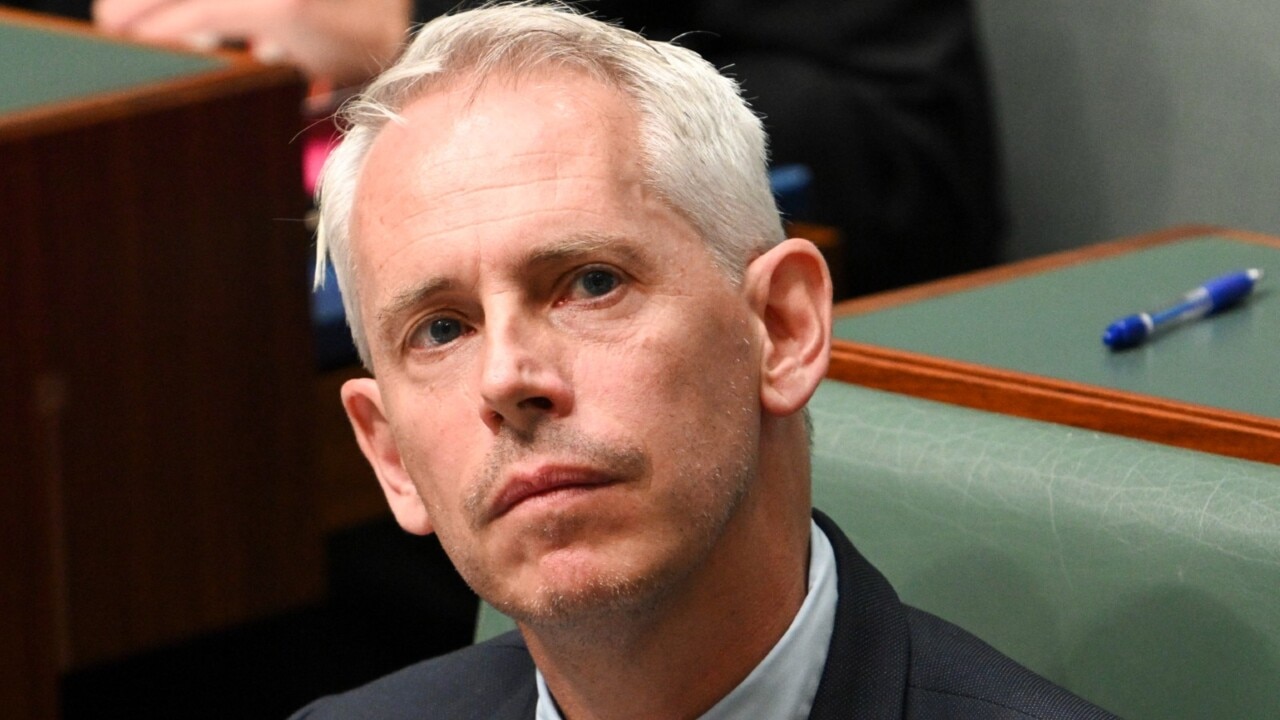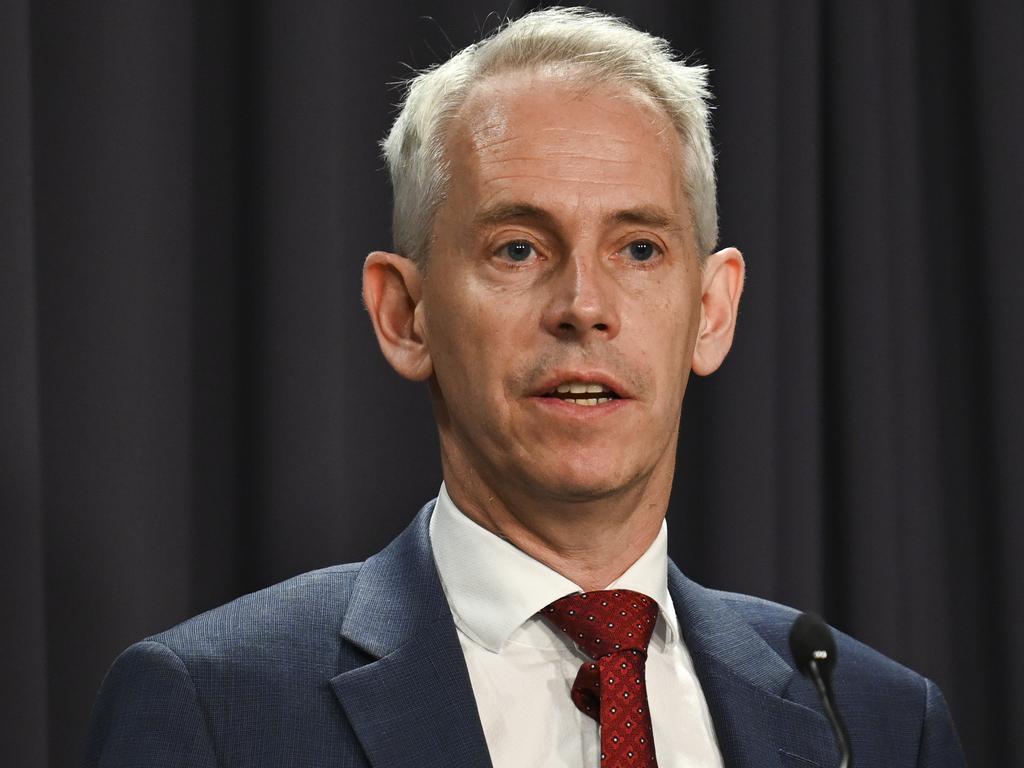Trio of rapists on the Andrew Giles visa leniency list
Three child rapists are among the growing number of pedophiles and sex offenders to escape deportation under Andrew Giles’s call for greater tolerance for offenders with ties to Australia | FULL LIST

A trio of child rapists are among the growing list of pedophiles and sex offenders allowed to remain in the country under Andrew Giles’s call for greater tolerance for foreign offenders with ties to Australia, as the Immigration Minister refuses to say if he will intervene in any of the visa approvals.
Abdul Wahab Trad, a 45-year-old Lebanese citizen who permanently relocated to Australia in 2013 escaped deportation in March over his 2020 rape of a 13-year-old girl after the Administrative Appeals Tribunal found that the man’s ties to Australia weighed heavily in favour of revoking the cancellation of his visa.
His case is one of dozens identified by The Australian in which the AAT’s decision has been shaped by Mr Giles’s Direction 99. The direction’s biggest change was to make the “strength, nature and duration of an individual’s ties to Australia” a primary consideration for the tribunal when considering appeals against the cancellation of visas.
Since the direction was handed down in January 2023, dozens of convicted non-citizens – including rapists, drug traffickers, pedophiles and repeat domestic violence perpetrators – have avoided being kicked out of the country after successfully arguing to the AAT that they had ties to Australia. That cohort includes Sudan-born Emmanuel Saki, who was charged over a stabbing murder in Queensland weeks after the AAT agreed to revoke the cancellation of his visa.
In addition to the Trad case, The Australian has identified two more cases of convicted child rapists allowed to remain in Australia at least in part due to the Direction 99 guidance.
One of those cases, referred to only as ZJFQ, involved an Afghan citizen who raped a 16-year-old girl and a 14-year-old girl in separate incidents in the space of six months in 2020 and who the AAT found was a “moderate to high risk” of committing further sexual offences.
In the other case, dubbed XLFM, a Kenyan-born man who raped the 17-year-old younger sister of the mother of his child and who also robbed a female service station attendant using a meat cleaver was also spared deportation.
Those three cases are in addition to the recent decision in CHCY, in which a New Zealand-born man who raped his stepdaughter while his wife was giving birth also successfully argued that his ties to Australia meant he should be issued a new visa.
The latest examples emerged as opposition immigration spokesman Dan Tehan vowed to scrap Direction 99 if the Coalition were returned to power at the next election. Mr Tehan called on Mr Giles to reveal if he planned to rescind the order that contributed to CHCY having his visa restored.
“We will on day one, as a priority, rescind that Andrew Giles ministerial direction if we are elected at the next election,” Mr Tehan said.
“And the fact that this child rapist, the most heinous of crimes to rape a stepdaughter while your partner is giving birth in hospital, what it shows is that ministerial direction is clearly failing.
“I don’t think that you could get a worse example that the ministerial direction is clearly failing, and that is why it needs to be rescinded. And it’s why Andrew Giles needs to come out today and explain why he won’t rescind it.
“We raised this last week; he did nothing.”
The growing number of cases of convicted foreign criminals allowed to remain in Australia in the wake of Direction 99 will add to pressure on the Albanese government over its handling of immigration matters.
The Trad decision describes how the man was driving along a road in Bankstown, in Sydney’s southwest, when he encountered the victim who got into his van. He then drove the girl to a park, where he touched her breast and digitally penetrated her vagina.
Trad’s case was decided by former Labor senator Linda Kirk, who found that primary consideration 3 – the strength, nature and duration of ties provision introduced under Direction 99 – weighed heavily in favour of revoking the cancellation of Trad’s visa.
“The applicant’s immediate family members provided statements in which they state the love and support for their husband and brother, and their desire for him to return to live with them in the community,” Dr Kirk’s decision said.

“The evidence is that the applicant’s wife, children, sister and brother will be highly distressed if he is returned to Lebanon.
“(Trad’s wife) and the two children will be emotionally devastated and financially disadvantaged if the applicant is unable to return home and resume employment as the family’s primary breadwinner.
“The tribunal finds that if the applicant’s visa is not reinstated, his immediate family will suffer considerable emotional and practical hardship due to the absence of their husband and father, and financial distress as a consequence of him not being able to contribute to the family’s finances.”
Dr Kirk also found Trad had made a “positive contribution” to the economy during his time in Australia, through his employment as an installer of wardrobes, kitchens and shower screens.
Dr Kirk was also responsible for an AAT decision revoking the cancellation of the visa of a 29-year-old Afghanistan citizen who had arrived in Australia in May 2017.
The man, ZJFQ, had twice been convicted of sexual offences against teenage girls, had been found to lack empathy for his victims, had not engaged in any sex-offender rehabilitation programs, had not demonstrated that he understood the concept of consent or that sex with underage girls is unlawful, and did not take responsibility for his actions.
“The tribunal finds that the likelihood that the applicant will engage in further criminal or other serious conduct, specifically sexual offences, is moderate to high,” Dr Kirk wrote.
The AAT found that the “strength of ties” consideration in ZJFQ’s case weighed in favour of revoking the cancellation of his visa, noting that separating him from his siblings and parents in Australia would cause them emotional distress.
The decision in the man’s case was, however, more heavily influenced by the lack of mental health services and treatment in Afghanistan, with Dr Kirk noting he would likely become homeless and destitute if he was sent there.
A spokeswoman for Mr Giles did not address questions about whether the minister would rescind any of the latest decisions. Instead, she said that while the rulings had been guided by Direction 99, AAT members ultimately exercised their own discretion.
“The ministerial direction places a significant emphasis on serious offending and family violence – which need to be considered in all matters,” Mr Giles’s spokeswoman said.






